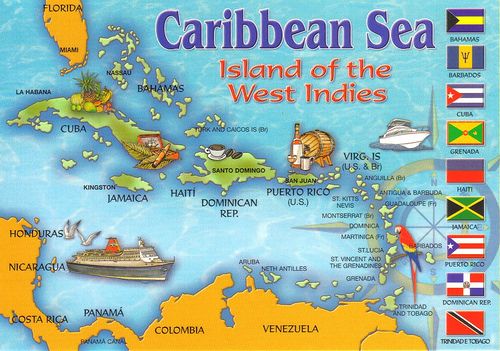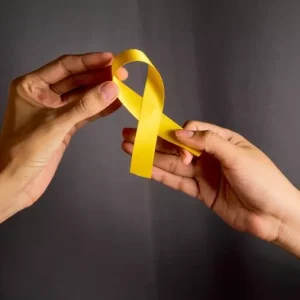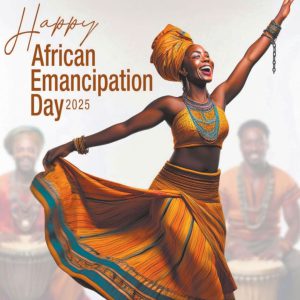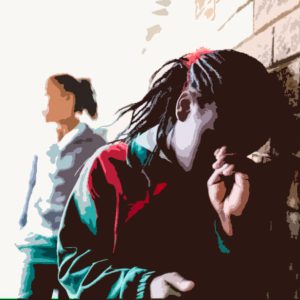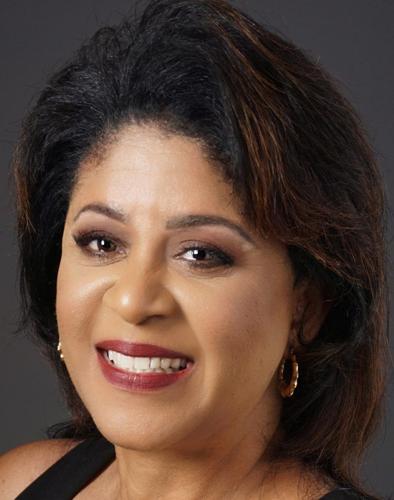
“The sea knows our histories.”
—Derek Walcott
Walcott’s phrase suggests the sea is more than water—it is a living repository of the region’s collective memory. The Caribbean waters have long served as silent witnesses to the brutal choreography of empire. They once carried slave ships packed with stolen lives, colonial fleets flying foreign flags, and indentured labourers lured by false promises of prosperity. As implied, if the sea could speak, its voice would be heavy with centuries of events—it would mourn, rage, and remember!
The sea remembers the cries of the enslaved Africans torn from their homelands and forced across the Atlantic in chains. It remembers the European powers that carved up the region, trading sugar for blood and sovereignty for profit. It remembers the arrival of Indian and Chinese labourers, brought to replace the freed slaves but bound by new forms of exploitation. These waters were highways of conquest, commerce, and cruelty.
And now, in this new century, the same sea watches as warships gather once again—this time off the coast of Venezuela. This nearby country under President Nicolás Maduro, has long been a thorn in Washington’s side. Accusations of narco-terrorism, economic sanctions, and diplomatic isolation have all been part of the game plan. Now, with warships looming, invasion hangs heavy. And the sea, once again, becomes the stage for imperious ambition.
The United States claims it is a mission to combat drug cartels, but the choreography of empire feels familiar. The language of intervention, the positioning of power, the shadow of regime change—it all echoes the old supercilious and disdainful motives and chess-played games.
The Caribbean has long been a pawn in many of these global games. Its people have endured the weight of foreign interests disguised as benevolence. And the sea has seen it all. The sea has watched empires rise and fall, watched flags change, watched promises made and broken. It has carried the bodies of the oppressed and the ambitions of the powerful.
If only the sea could talk, it would ask: who speaks for the Caribbean now?
In the face of foreign warships and veiled threats, the voices of regional leaders carry the weight of generations who fought for self-determination, for dignity, for the right to chart their own course. There are leaders who have stood firm. Former Trinidad and Tobago prime minister Dr Keith Rowley once cautioned against aligning with foreign military interests, reminding the region that sovereignty is not a favour granted—it is a right earned. His words echoed across the archipelago like a conch shell call to memory: we must not be pawns in someone else’s game.
But other leaders remain quiet, hesitant, or complicit, forgetting the lure of aid, trade, and diplomatic favour often comes with strings that tug at the very fabric of our independence. In moments like these, the Caribbean needs leaders who understand that the same sea which brought colonisers centuries ago now watches to see whether its children will defend their shores with wisdom and unity.
Regional organisations like Caricom have the potential to be bulwarks against external aggression, but their strength lies in collective resolve. The sea has seen what happens when islands stand alone. It has seen us divide and conquer. It knows that unity is not just strategy—unity is our survival. To be collectively responsible is to challenge the narratives that justify intervention—to educate, to mobilise and, most of all, to remember the past. It is to teach our children the sea is not just a place of leisure—it is a place of legacy.
But the burden of history should not be carried by governments alone—it rests on the shoulders of every citizen, every island, every voice that chooses silence over resistance to imperious demands. The sea has seen what happens when we turn away. It has watched as one island is destabilised while others remain untouched, believing they are safe. It knows that the tides of imperialism do not respect borders—they rise and fall across entire regions.
Angela Davis once said, “I am no longer accepting the things I cannot change. I am changing the things I cannot accept.” Her words echo across the Caribbean today, urging us to rise—not just in protest, but in purpose. In the Caribbean, many of us are watching, thinking, feeling—but hesitant to speak.
This hesitation is real (as is the emotional and mental toll that this imperious intervention has caused), and it deserves respect, as our families, our livelihoods, and our safety are not abstract concerns. But even within those self-imposed boundaries, there is room to act. To question. To remember. To find ways to honour what we know to be right. For the sea has carried our past— now we must carry its wisdom. And if we are to honour its memory, we must be the stillness that refuses to forget, and the continued presence that endures.
If only the sea could talk, it would urge today’s leaders to remember and to speak not just for political expediency, but for historical justice. To ensure the Caribbean is not merely a location on a map, but a voice in this world.
And perhaps, if our leaders truly listened, the sea would no longer need to speak at all.
—Author Margaret Nakhid-Chatoor is a psychologist and educator
Credit – Express Newspaper, (trinidadexpress.com)
See the original article here.

